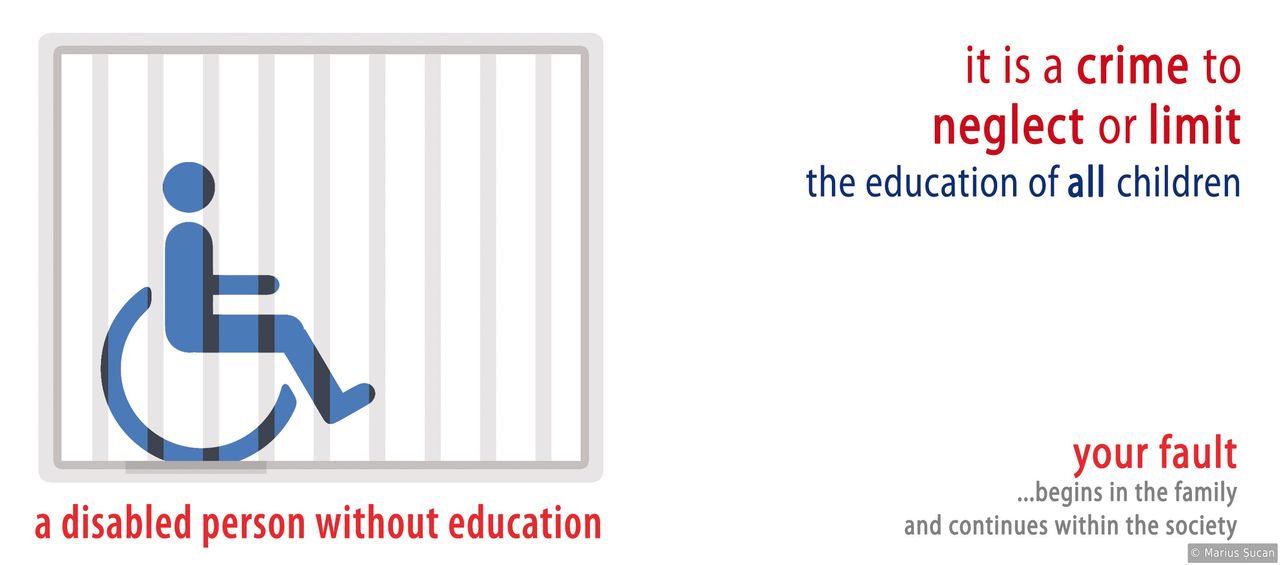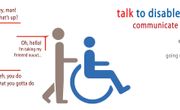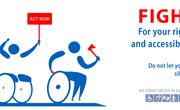A disabled person without education
Created .
I made this image to raise awareness on the importance of education for disabled people. Disabled children that do not get education feel imprisoned and no longer have a future. Without education, disabled children will remain forever heavily dependent on other people, because they cannot become more independent by working and earning money.
Quick facts and statistics:
- Approximately 15% of the world's population, or estimated 1 billion people, live with disabilities. They are the world's largest minority, according to the official site of United Nations.
- 80% of persons with disabilities live in developing countries, according to the UN Development Programme.
- Disability rates are significantly higher among groups with lower educational attainment or with a low income.
- 90% of children with disabilities in developing countries do not attend school, says UNESCO.
- The global literacy rate for adults with disabilities is as low as 3%, and 1% for women with disabilities, according to a study from 1998 by UNDP. According to Wikipedia, the global literacy rate for all males is 88.6% and the rate for all females is 79.7%, aged 15 and over. This is a huge discrepancy. In the tables on Wikipedia, you can also notice that even in the countries with the lowest literacy rates, the situation is not so dramatic as it is for the disabled people worldwide.
- 47% of disabled people currently work compared to 77% of non-disabled people, according to the Labour Force Survey from 2010, 4th Quarter.
- At age 26, disabled people were nearly four times as likely to be unemployed or involuntarily out of work than non-disabled people. Among those who were in employment, earnings were 11% lower than for their non-disabled counterparts with the same level of educational qualifications. Statistics from: Papworth Trust Disability Facts and Figures, 2010.
- Disabled people are around three times as likely not to hold any qualifications compared to non-disabled people, and around half as likely to hold a degree-level qualification, based on the Labour Force Survey from the 2nd Quarter of 2012, in United Kingdom.
Worldwide, a small percentage of disabled people can enjoy education and a much smaller one, higher education. From those who get education, in developed countries, only 20% to 50% of them, get paid work. The conclusion is that disabled people are substantially handicapped and imprisoned by the society they live in. In developing countries or in Eastern Europe, the situation is much worse, at any level.
It is a crime to neglect or to limit the education of disabled children. Their potential is never unlocked and put to a good use. Your fault begins in the family and continues within the society. People choose to ignore the education of disabled children.






